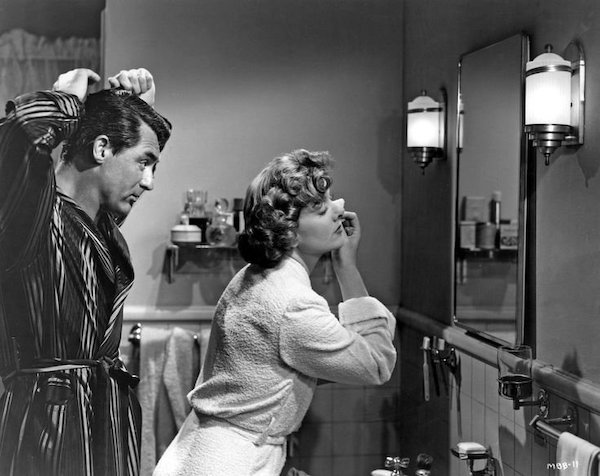We all know that on-screen characters aren’t real life, yet some actors seem to exude a persona that is irrepressible. Cary Grant enjoyed a decades-long career, working with amazing co-stars and vaunted directors, making audiences laugh, cringe, gasp, and cheer. He was enormously popular in his career and his status as a movie star has never waned. One can find a fitting movie for just about any mood or situation. Explore these life lessons with Cary Grant characters.
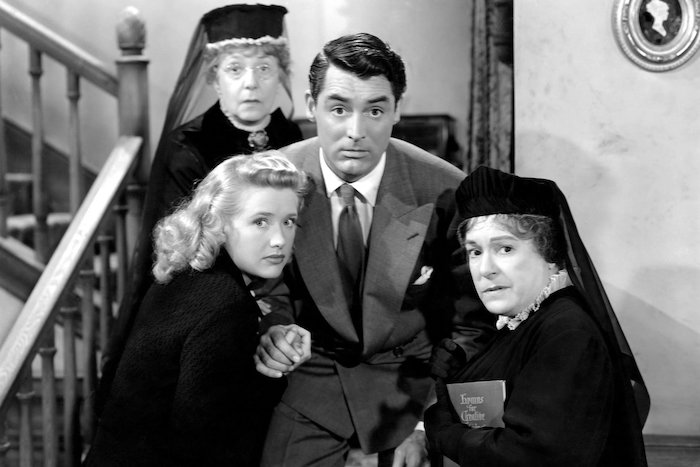 Arsenic and Old Lace (1944)
Arsenic and Old Lace (1944)
“Insanity runs in my family; it practically gallops.”
Is your family a bit nuts? Do your spinster aunts have bodies buried in the basement? Do you ever wonder if you are actually related to them? Mortimer Brewster certainly does in Arsenic and Old Lace (1944). This rollicking comedy is hilarious and really lets Grant exercise his zany side.
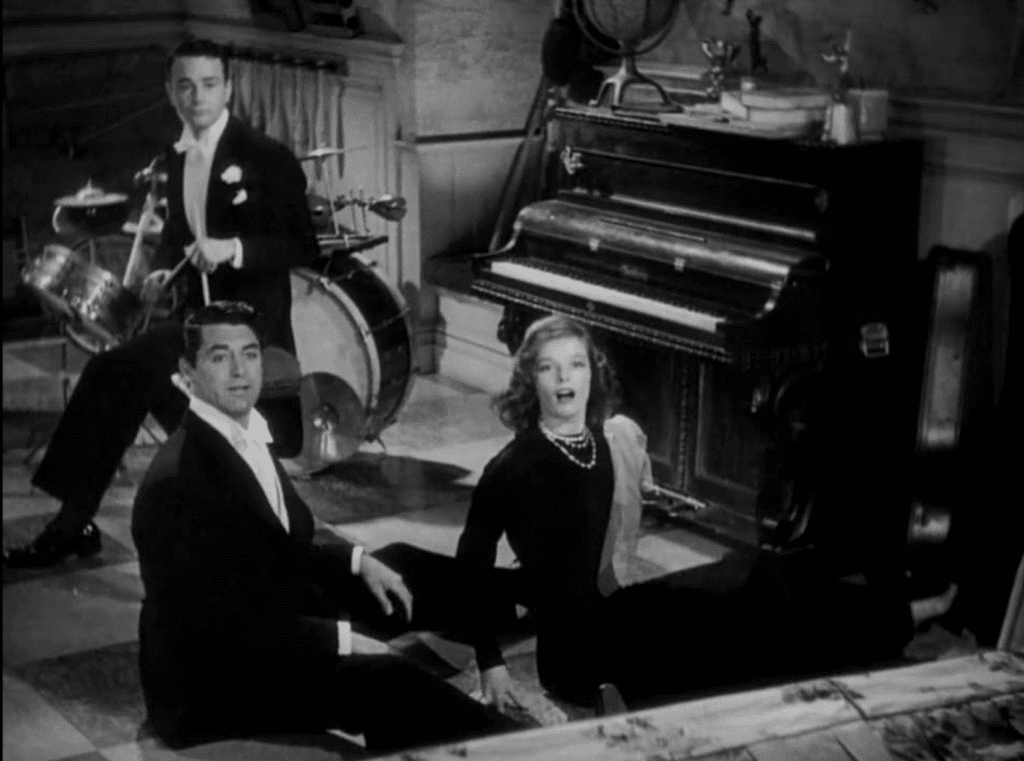 Holiday (1938)
Holiday (1938)
“The world’s changing out there. There are a lot of new, exciting ideas running around. Some may be right and some may be cockeyed but they’re affecting all our lives. I want to know how I stand, where I fit in the picture, what it’s all gonna mean to me. I can’t find that out sitting behind some desk in an office, so as soon as I get enough money together, I’m going to knock off for a while.”
There are days when life feels overwhelming, that the world is spinning out of control and you can’t keep up with it, let alone do anything about it. It’s a feeling we all have from time to time.
In Holiday, Grant is newly affianced and meant to be downstairs enjoying his engagement / New Year’s Eve party. Instead, he is hiding with his sister-in-law (Katharine Hepburn) upstairs in the old nursery. They are goofing around and trying to ignore the adulthood they are faced with. It’s a funny yet bittersweet film.
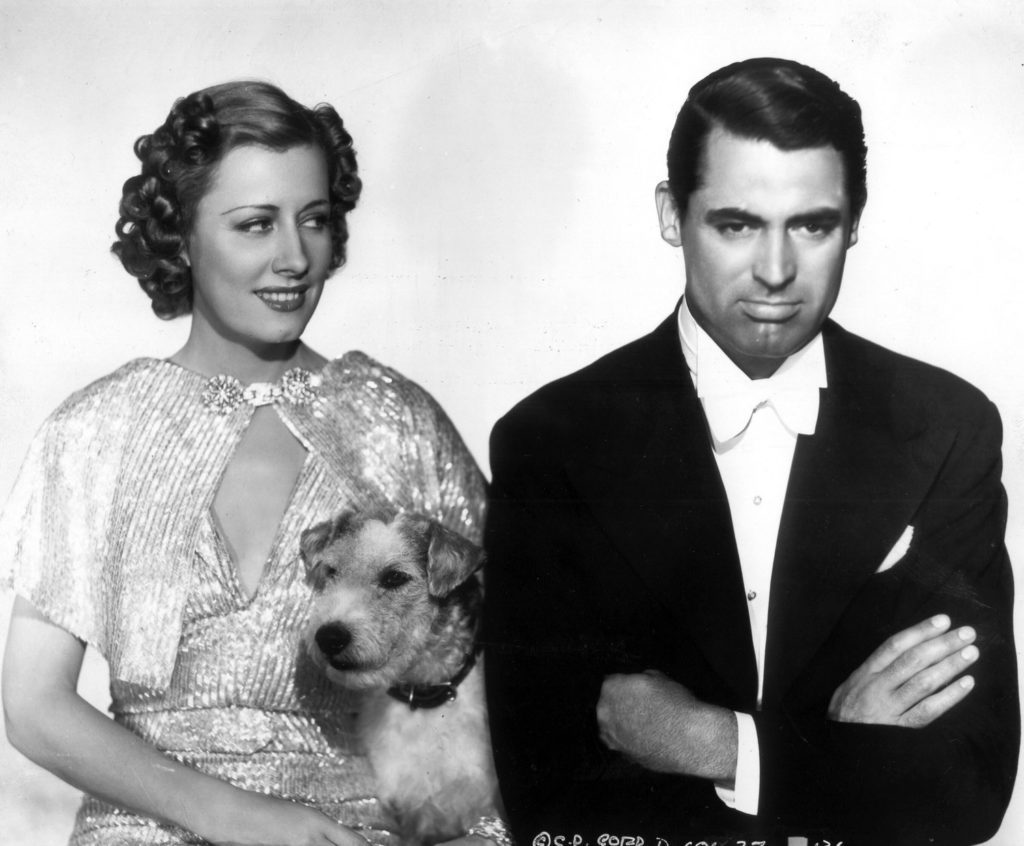 The Awful Truth (1938)
The Awful Truth (1938)
“That’s the trouble with most marriages today. People are always imagining things. The road to Reno is paved with suspicions. And the first thing you know, they all end up in a divorce court.”
Divorce comedies were all the rage in the 1930s, an odd genre that lent itself to the screwball laughs audiences loved. The Awful Truth is one of the best examples, showcasing Grant and Irene Dunne’s comedy chops. The two are about to finalize their divorce but are trying to sabotage one another’s new relationships. It’s also another of the acting dog Skippy’s screen roles, best known for his portrayal of Nick and Nora Charles’s beloved Asta.
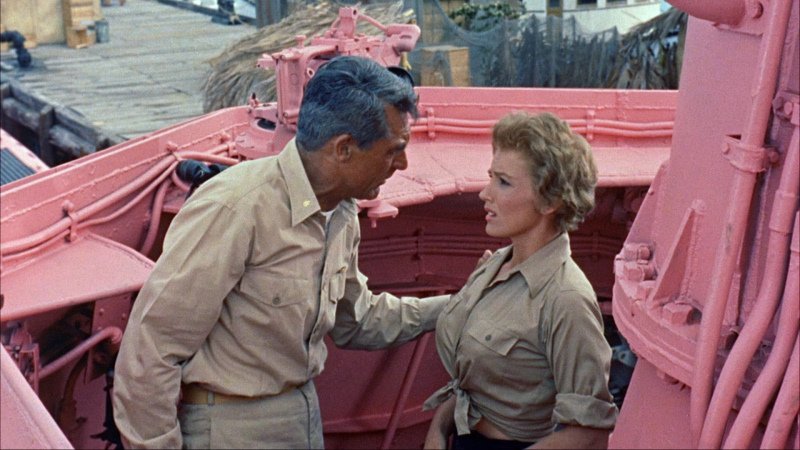 Operation Petticoat (1959)
Operation Petticoat (1959)
“It’s like watching a strip tease. Don’t ask how it’s done, just enjoy what’s coming off.”
It’s his own way of saying, when life hands you lemons, etc., etc. As captain of a damaged submarine limping in for repairs, he is forced to rescue a group of stranded nurses – then they have to paint the sub pink (don’t ask, just watch it). Directed by Blake Edwards, and co-starring Tony Curtis, Grant acts as comedic anchor for the farce at sea.
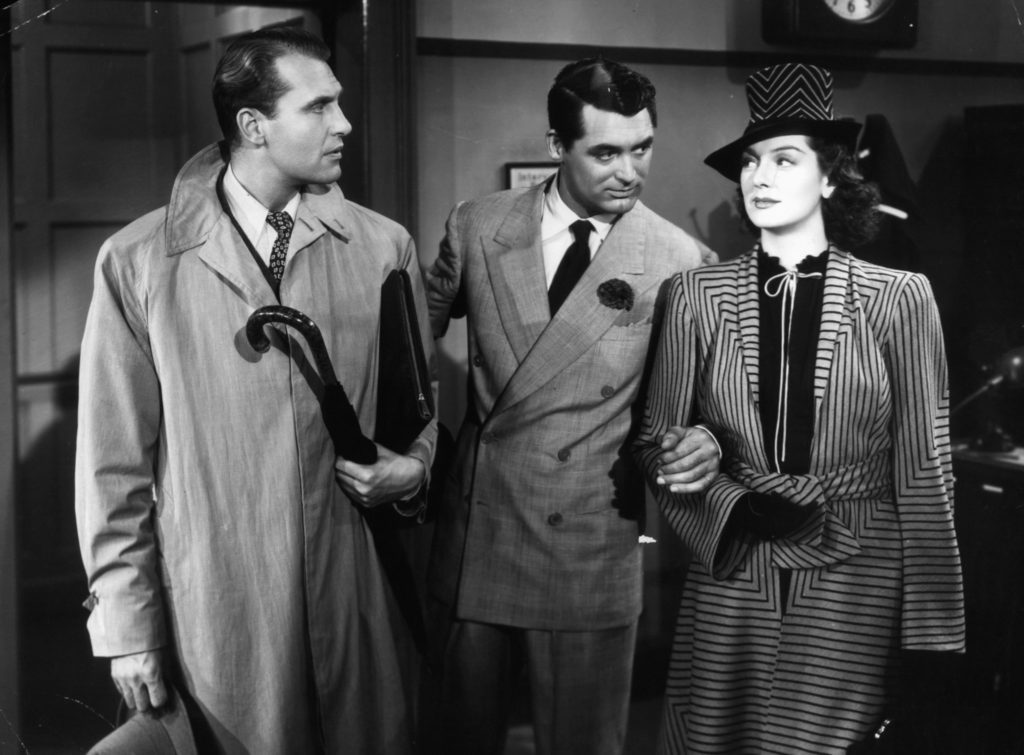
His Girl Friday (1940)
“When you walk out that door, part of me will go right with you. But a whole new world’s gonna open up for you.”
Sometimes, you just have to let someone go and hope that maybe they will come back. Interestingly, a number of Grant’s movies cast him as the man who is losing the girl, but is being a gentleman about it. Of course, the audience (and the girl) chooses him in the end, but in between is the good stuff.
This Howard Hawks classic lets Rosalind Russell shine as star reporter Hildy Johnson. It is also smart enough to allow her character to come to her own decision about Grant. A modern woman, indeed.
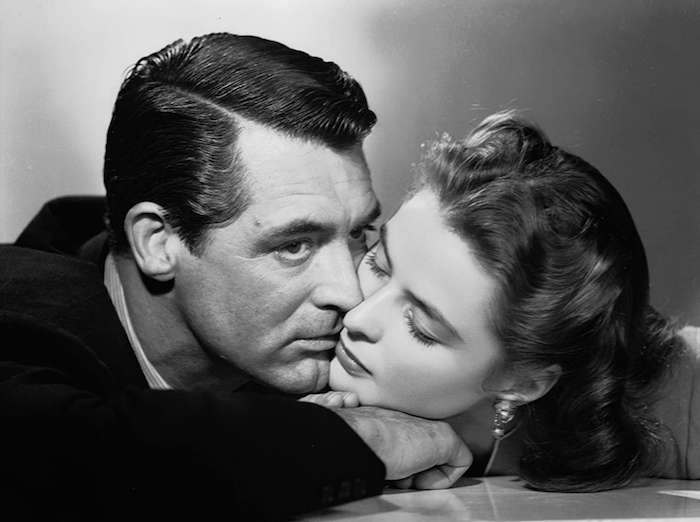
Notorious (1946)
“A man doesn’t tell a woman what to do. She tells herself.”
As previously mentioned, Grant’s characters have learned to step aside and let his female counterpart thrive. Ingrid Bergman’s Alicia is a force to be reckoned with, practically shivering with barely contained energy underneath her domesticated facade. Claude Rains’ inability to accept this is ultimately his downfall.
North By Northwest (1959)
“Now you listen to me, I’m an advertising man, not a red herring. I’ve got a job, a secretary, a mother, two ex-wives, and several bartenders that depend upon me, and I don’t intend to disappoint them all by getting myself ‘slightly’ killed.”
Sure, an unexpected adventure is fun, but when a person gets to a certain age, they have responsibilities. There will be a time when one has to decline the bachelor party invitation of the boys’ trip to Vegas in favor of things like… keeping your job and your health insurance. And that’s okay. Stability is something everyone needs.
If you are itching for an unlikely adventure, revisit this Hitchcock classic where an everyday ad exec is mistaken for a CIA operative, then spends the next several days trying to avoid assassins.
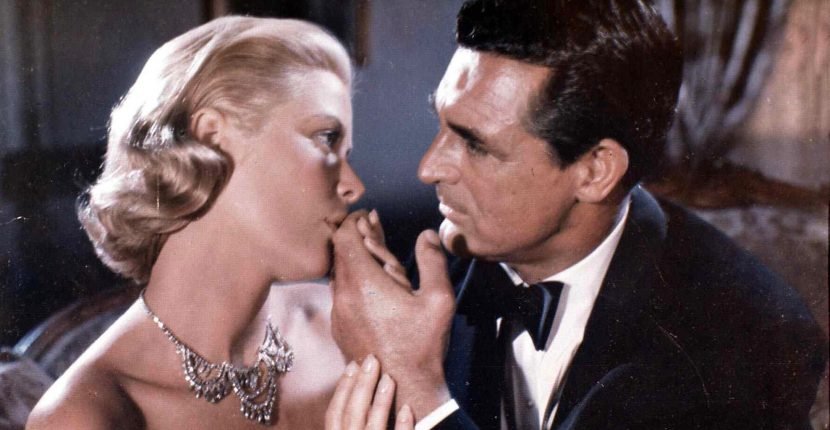
To Catch A Thief (1955)
“You know as well as I do: this necklace is imitation.”
It’s okay to call out the fakes of the world, especially when they want something from you. Demand and value real friendships and the real moments in life. Grant’s character has to defend his own reputation against that of an imitation cat burglar, as well as figure out who is deceiving him. Maybe don’t run away to Monaco and stage robberies along the Riviera, but at the same time: don’t accept the phonies in life.
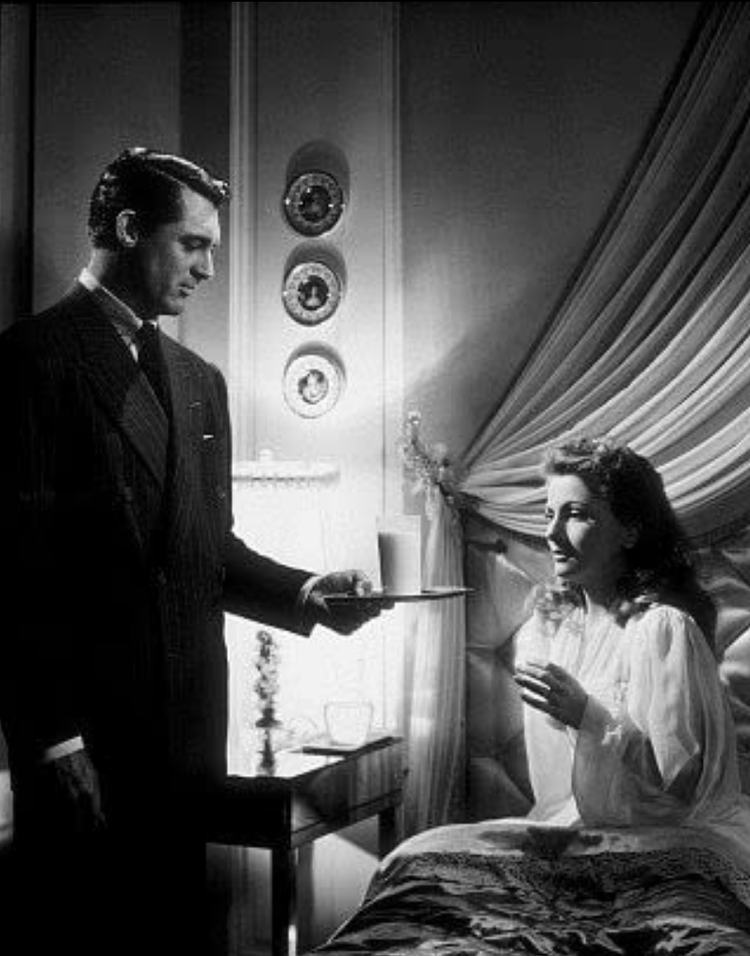
Suspicion (1941)
“If you’re going to kill someone, do it simply.”
Setting aside the idea of murder, there is advice to be had here. Cut to the chase. If there is something in life that you want, set some goals and go for it.
Grant’s character in this film is unlike any of his others. He’s charming, but with an underlying sleaziness. He is always playing multiple sides, hoping one will pan out instead of taking his own advice and being a straight shooter.
Mr. Blandings Builds His Dream House (1948)
“Just a private joke between me and whoever my analyst is going to be.”
Don’t hold it inside. If you’re under a great deal of stress, you need to talk about it. You may think keeping it to yourself is better for everyone, but it will do more harm than good. Grant is a successful New York City ad man with an adoring wife and two whipsmart children. They decide to move to the country, opening a can of worms when they renovate an old house. He puts on a brave face and absorbs the blows, with humorous consequences.
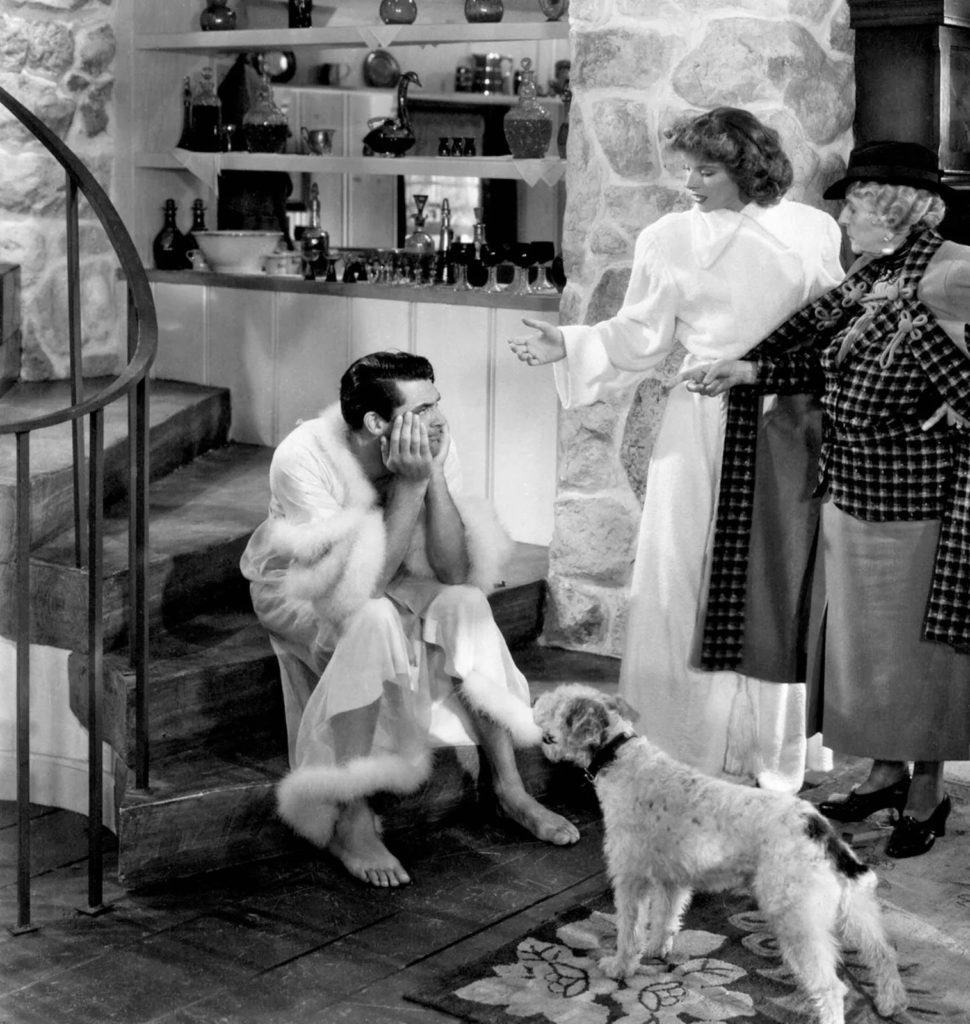
Bringing Up Baby (1938)
“Now it isn’t that I don’t like you, Susan, because, after all, in moments of quiet, I’m strangely drawn toward you, but – well, there haven’t been any quiet moments.”
Everyone needs a bit of quiet time, no matter how much they love being the life of the party. After all, it’s only when we are alone with our thoughts that we can truly reflect.
Grant’s character in this fast-talking screwball comedy can’t seem to get a word in edgewise, let alone a quiet second. The misunderstandings make for some laughs but wouldn’t be healthy in real life. (Skippy the dog is also in this film).
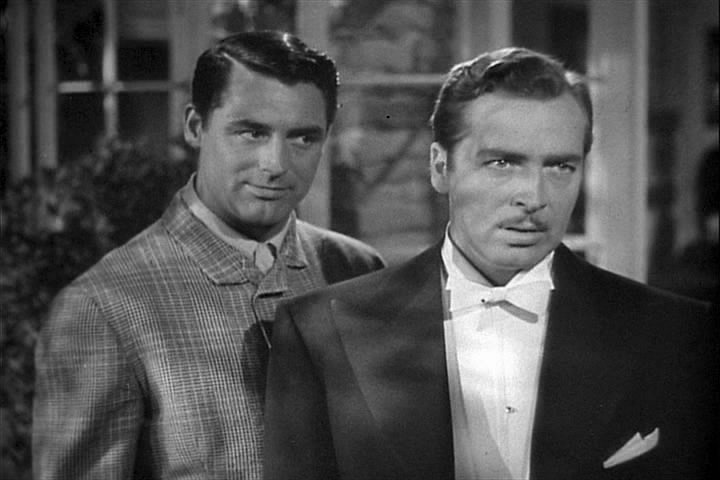
The Philadelphia Story (1940)
“You’ll never be a first class human being or a first class woman until you’ve learned to have some regard for human frailty.”
If you get too wrapped up in your own drama (let’s face it – we all do from time to time), it’s hard to accept the faults we all have as human beings. Everyone has weaknesses, but when we pounce on one another’s mistakes instead of fixing our own, we do everyone a disservice.
Grant’s portrayal of C.K. Dexter Haven shows how granting a bit of grace and tough love allows Katherine Hepburn’s Tracy Lord to grow and improve. His character is in clear contrast to her fiancé, who requires straitlaced perfection. The lessons in this film are unmistakable and timeless.
As for something Grant himself said, “It is the law of life that if you are kind to someone you feel happy. If you are cruel you are unhappy. And if you hurt someone, you will be hurt back.”
Originally written for DVD Netflix


